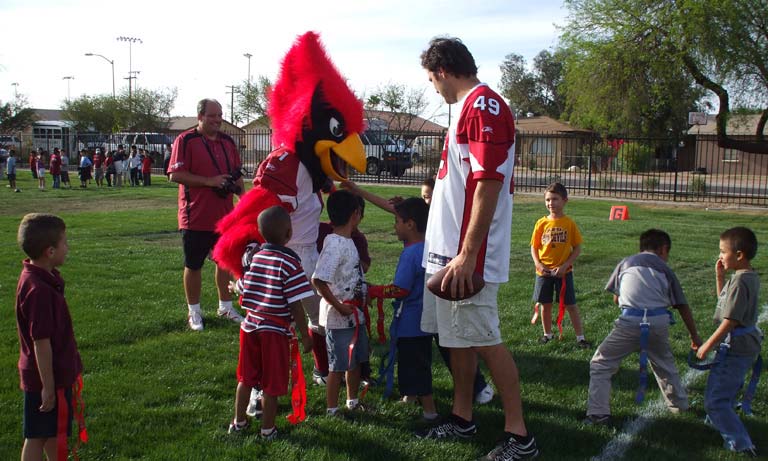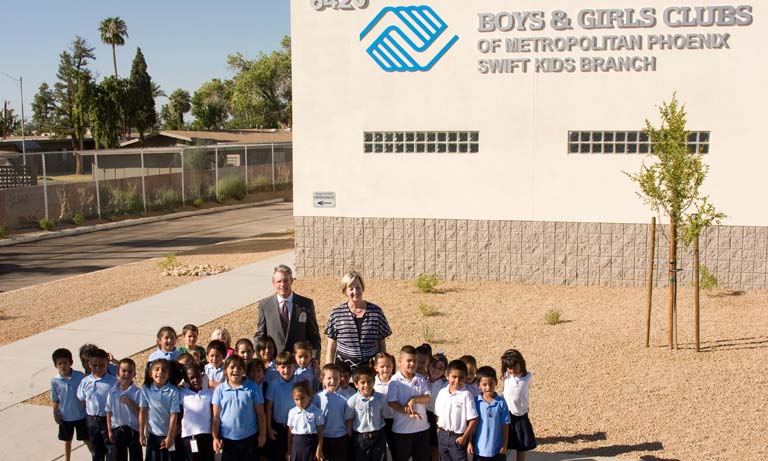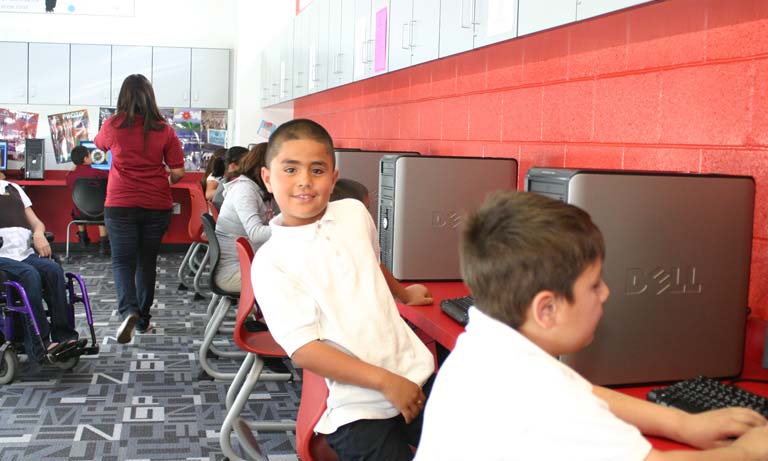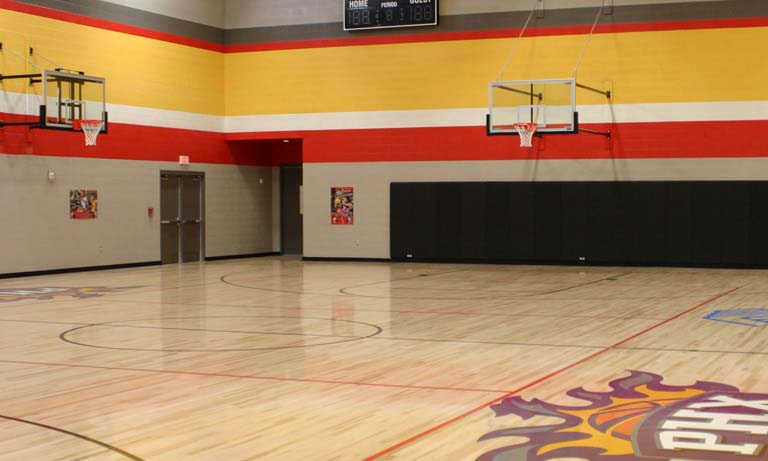
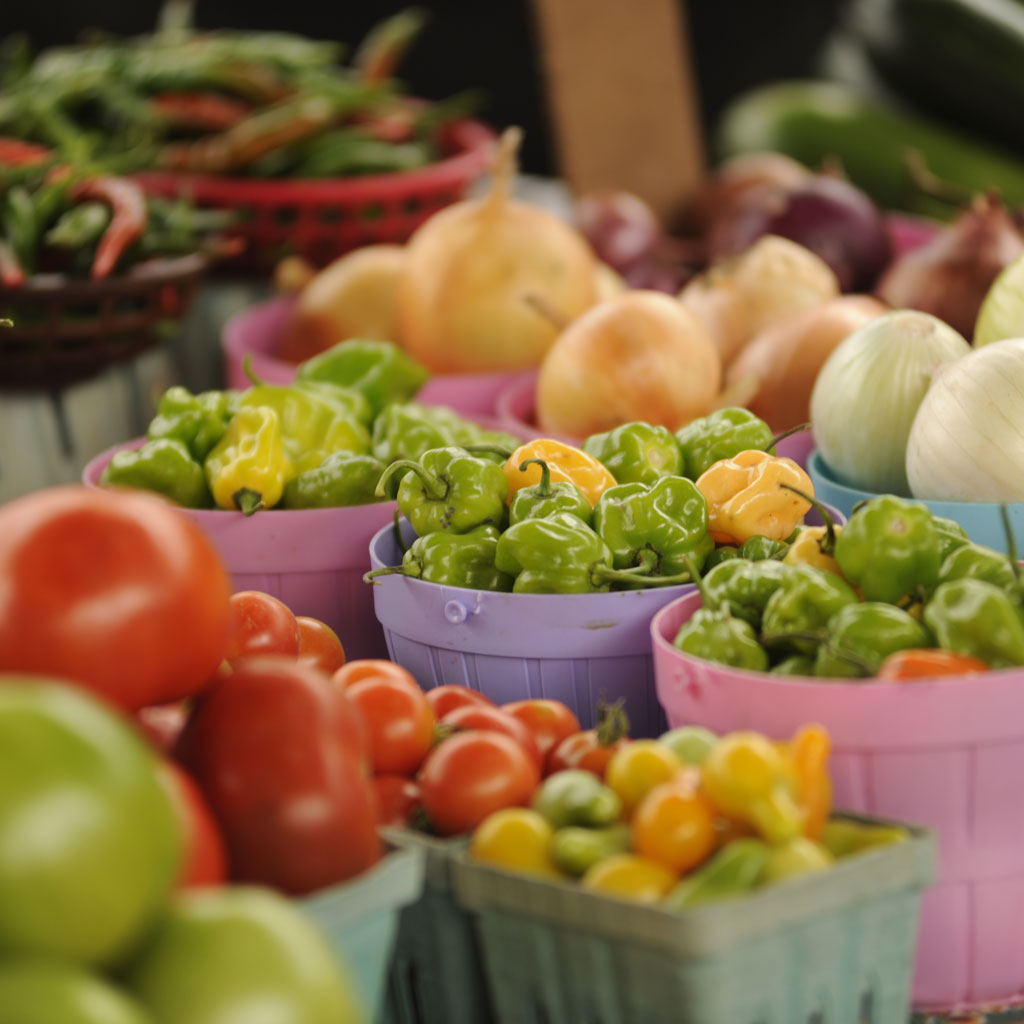
5
Health & Environment
Ensuring that developments promote active lifestyles, sustainable use of resources, and safe and healthy surroundings

“Residents can’t feel good about their communities if they don’t feel safe there. Or, if their kids have nowhere to play. Or, if they can’t find a home free from environmental hazards, or a primary care doctor to meet their medical needs. A truly Sustainable Community contributes to the physical well-being of the people who live there.
For LISC, this takes many forms: support for quality athletic fields and recreational facilities; community-police partnerships; local health clinics; and environmentally sound building and design. They are all important components of quality of life.”
Playing Fields Renovated
241
Playing Fields Renovated
Invested in New Playing Fields
$28M
Invested in New Playing Fields
Kids Using new Recreation Fields
450,000
Kids Using new Recreation Fields
Neighborhoods with
Community Safety Programs
50
Neighborhoods with
Community Safety Programs
1
NFL Grassroots Program
National
Recreation facilities provide a place for boys and girls to play, compete and lead healthy lives.
Since 1998, LISC and the National Football League have worked together to provide youth in under-served neighborhoods around the country with access to safe, quality community playing fields. This partnership has invested $28 million in 32 cities, leveraging an additional $100 million from local supporters, which has enhanced the health and social well-being of more than 450,000 children.
Supporting healthy environments and lifestyles is one of the core goals of LISC’s Building Sustainable Communities strategy. Recreation facilities provide a place for boys and girls to play, compete and lead healthy lives. Year round sports and after-school activities give young people safe, positive alternatives to delinquency or other destructive social influences like drugs and gangs. These places also give families the opportunity to connect with their neighbors, which strengthens the cohesion of the community.
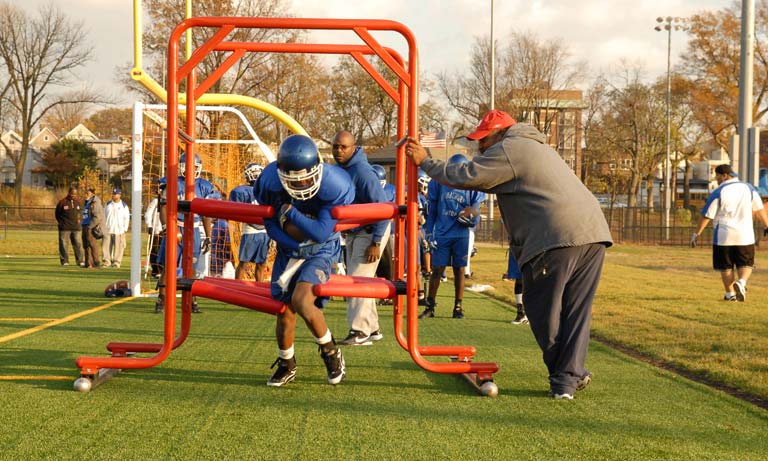
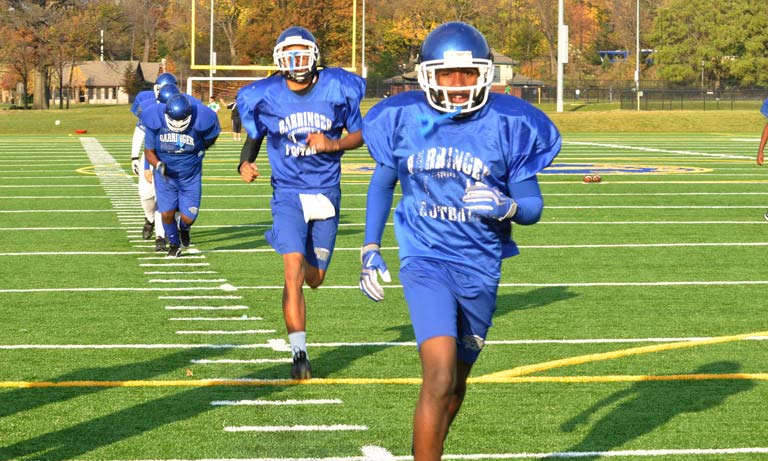
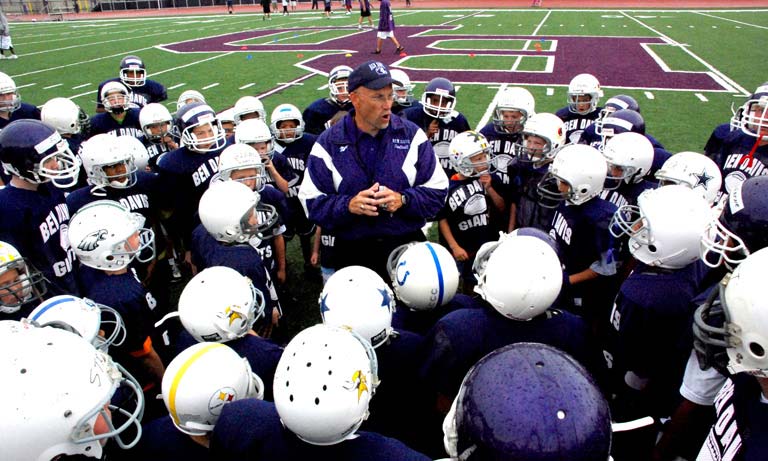
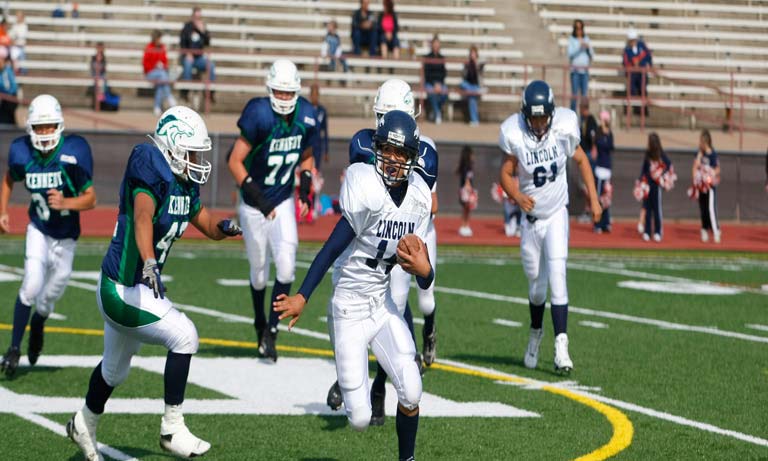
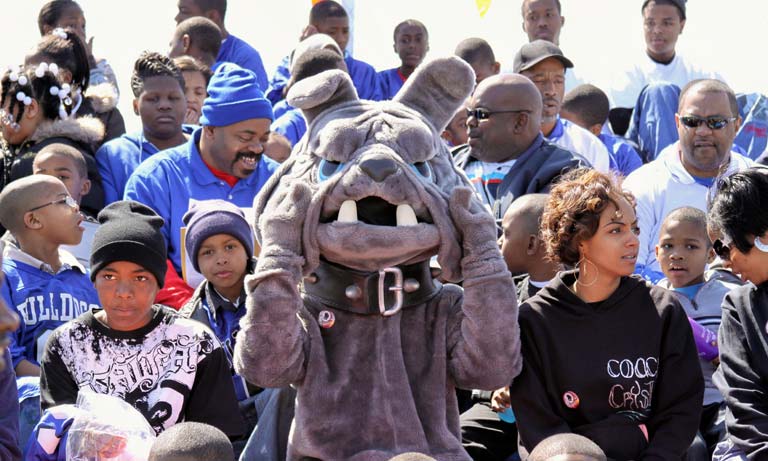
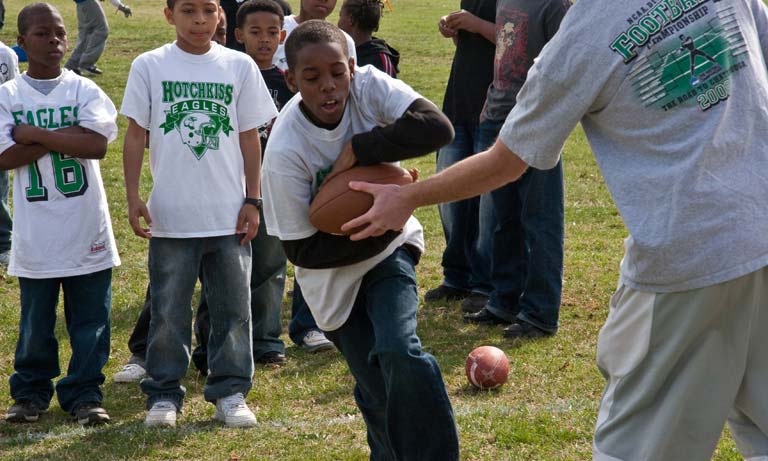
With support from the NFL Grassroots program, LISC provides nonprofit organizations and schools with financing and technical assistance to create playing fields that typically include new synthetic turf, irrigation systems, lights, bleachers, scoreboards and goals posts. For 12 years, this collaboration has built or restored more than 200 community fields nationwide, and has demonstrated that a strategic investment in recreational play areas pays multiple dividends – in young people’s lives, their healthy development, and the vitality of their community.
2
Health Care
San Diego, CA; Kansas City, KS; Milwaukee, WI; Uniontown, PA
A truly sustainable community contributes to the physical well-being of the people who live there.
LISC has invested nearly $40 million for 36 health clinics in urban and rural areas across the country that provide affordable primary care, dental care, mental health services, and health education to residents. Providing neighborhoods with the opportunity to raise healthy families is critical to LISC’s Building Sustainable Communities strategy. A truly sustainable community contributes to the physical well-being of the people who live there. Quality, affordable health care allows children to learn and grow into strong young men and women, parents to work and lead more productive lives, and neighbors to support each other in times of sickness and crisis.
Together with health care providers, community-based organizations, and schools, LISC is helping to reduce health disparities in low-income communities and create a culture of healthy living for children and families. LISC supports school-based health clinics that provide children and adolescents with regular checkups and immunizations; community health clinics that provide preventative care to low-income residents from birth through older adulthood; and case management services that help individuals with needs related to behavioral health, addiction, transportation, housing, food, child care and more.
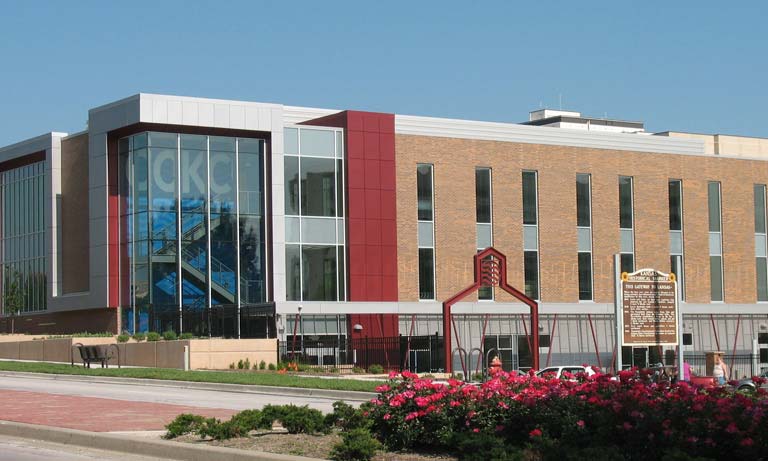
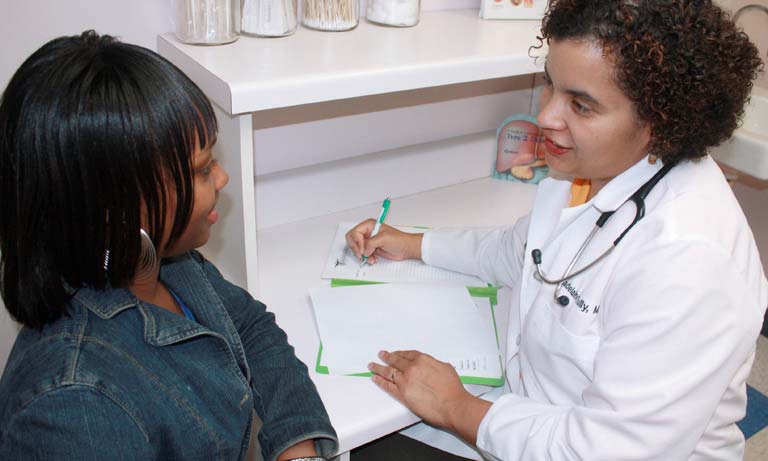
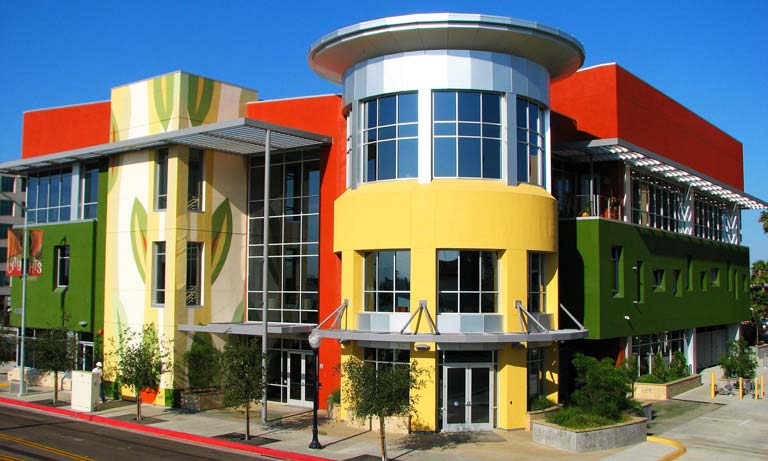
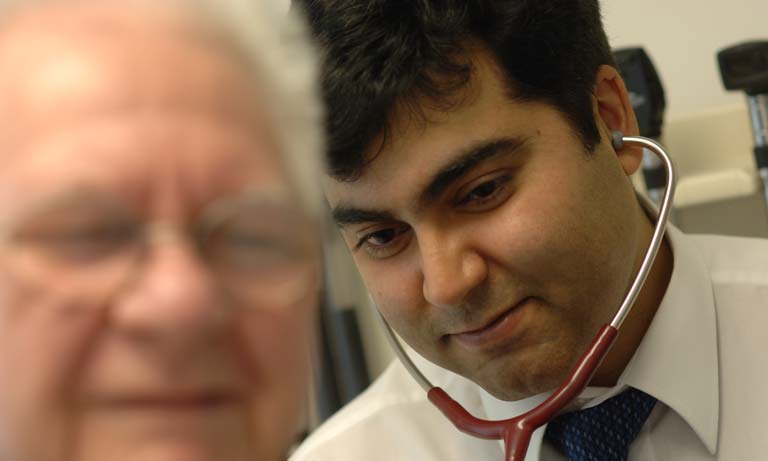
Access to affordable health care is vital to improving the quality of life for residents and a core component of LISC’s comprehensive view of healthy neighborhoods.
3
The Arts
Chicago, IL; Philadelphia, PA; Buffalo, NY; Washington, DC
Redeveloping communities need to offer residents an environment that enhances their health, enjoyment and overall sense of wellbeing.
Redeveloping communities need to offer residents an environment that enhances their health, enjoyment and overall sense of wellbeing. LISC knows that utilizing the visual and performing arts engages a community’s imagination, helps beautify its surrounding, and fosters pride in its residents. Through the arts, we are bringing a new surge of life to neighborhoods and enriching the lives of the people that live there.
In Chicago’s south side, the redevelopment of the former University of Chicago printing press building into Hyde Park Art Center includes an art gallery, classrooms for community-based outreach initiatives, artist studios, and an art resource community center.
In Philadelphia, Mural Arts Program has created over 3,000 murals and works of public art throughout the city since 1984, engaging residents in over 100 communities and transforming neighborhoods through the mural-making process.
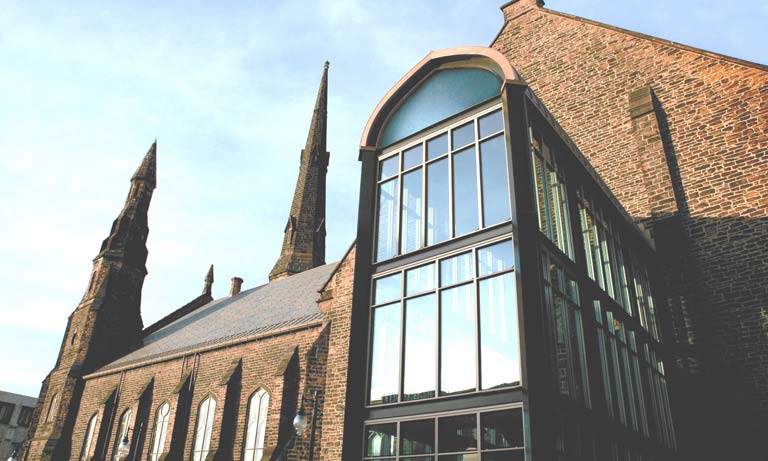
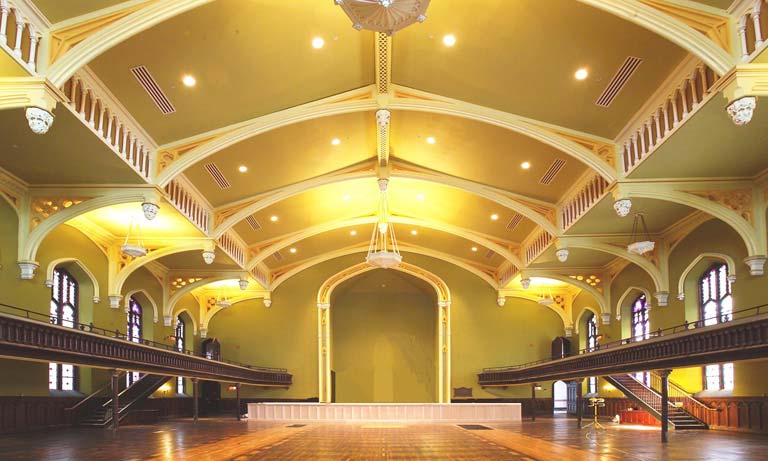
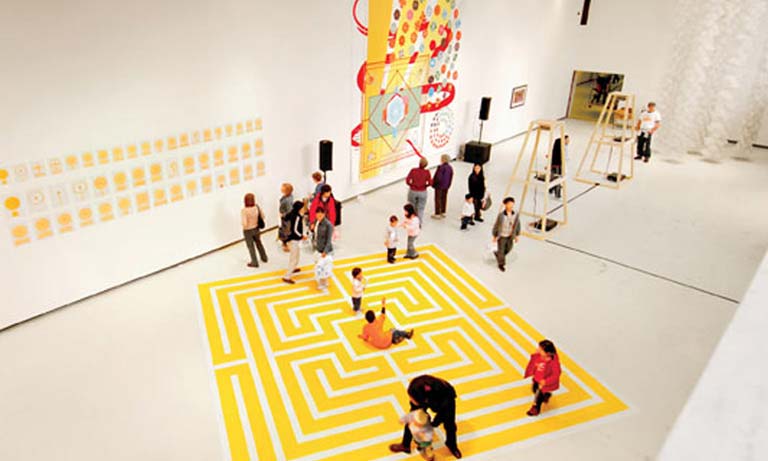
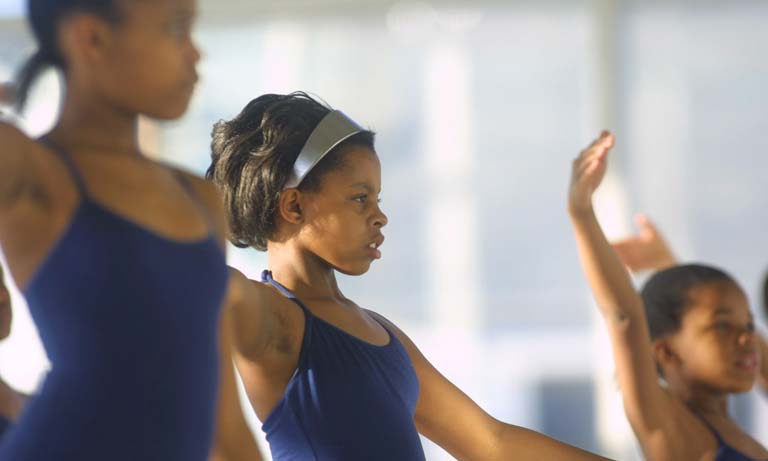
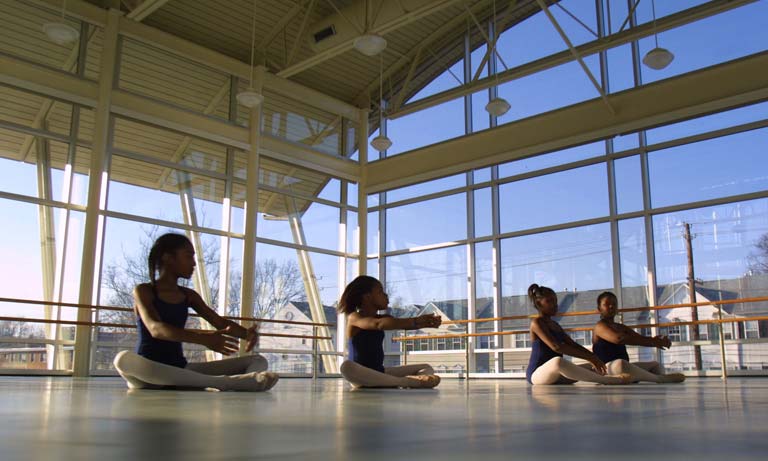
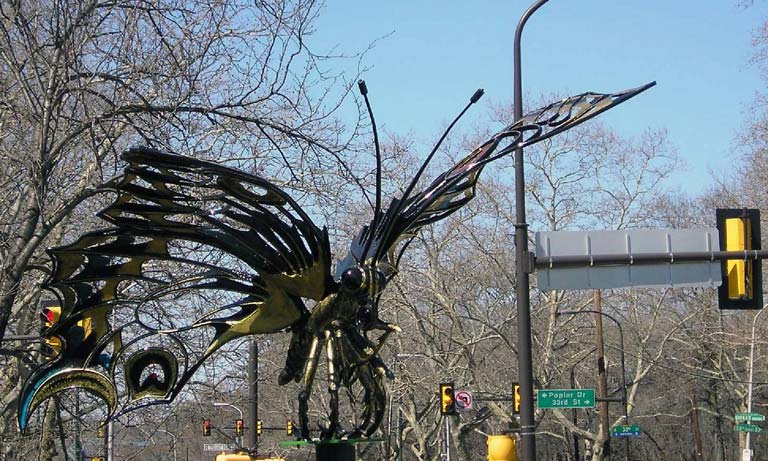
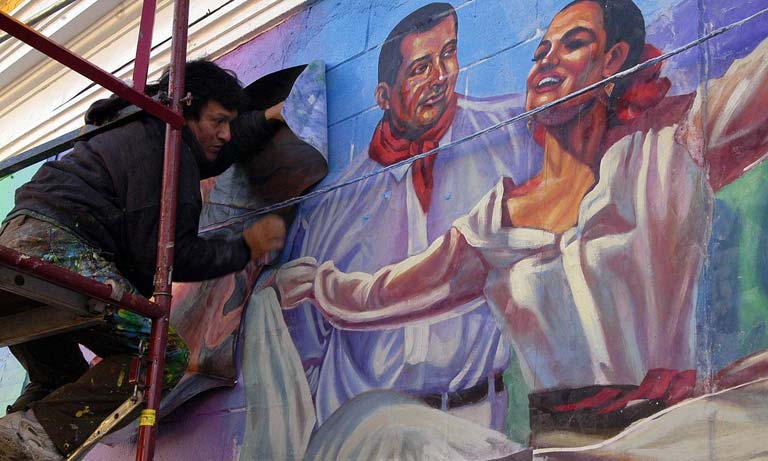
The 130-year old Asbury Delaware Church in Buffalo, NY now contains a recording studio, an art gallery, and a 1,000-seat performance hall. The church is a center for arts and culture in that community.
In Washington, D.C., the Town Hall Education Arts and Recreation Campus (THE ARC) contains a 365-seat performing arts theatre, artist studios, and offers an eclectic range of community services. This remarkable arts and education center plays host to more than 2,000 residents every week.
4
Farm 2 Table
Richmond, CA
Nationwide, the USDA estimates that 23.5 million people, including 6.5 million children, live in low-income areas that are more than a mile from a supermarket. In Richmond, California, one in three children is impacted by obesity (the highest rate in the state).
To help combat this health crisis, LISC, the Richmond Children’s Foundation, and other partners have come together to create Farm 2 Table, a unique program that brings fresh, seasonal fruits and vegetables to low-income families at an affordable price.
The program has a tiered structure based on income with some families paying $50 per month, or as low as $10, for two boxes of fresh, locally-grown fruits and vegetables. Lower-income families can also use food stamps to purchase their boxes.
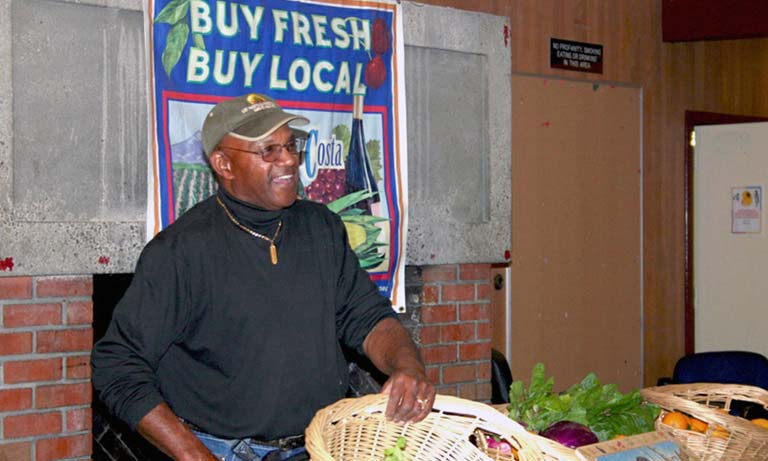
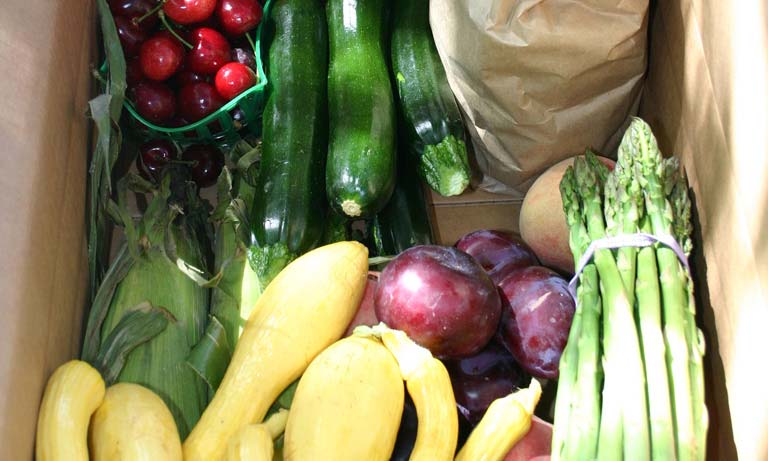
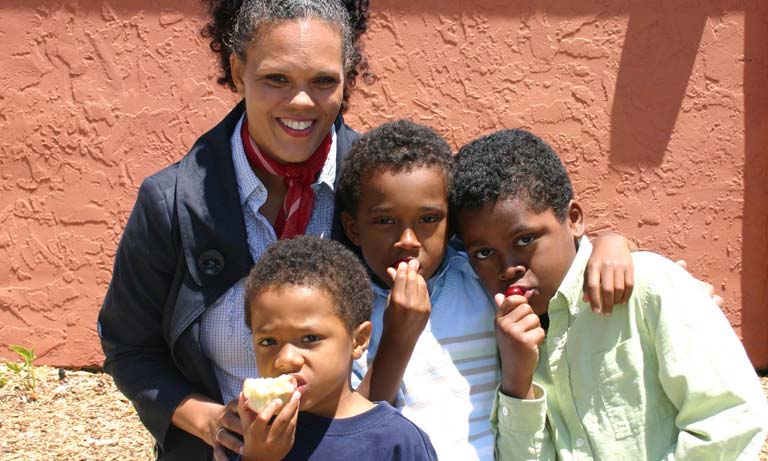
The program fosters a direct business relationship between local farmers and urban communities that benefits local residents, a win-win situation for all involved. It opens up new markets for farmers, it creates jobs in the community, and residents incorporate nutritious fruits and vegetables into their daily diets.
5
Community Safety in Olneyville
Providence, RI
Police and community residents working together have made community safety a central part of comprehensive community development plans.
In Rhode Island – where LISC’s Building Sustainable Communities program is called “Our Neighborhoods” – police and community residents working together have made community safety a central part of comprehensive community development plans. In Providence’s Olneyville neighborhood, nuisance properties have been transformed into quality affordable housing, helping attract businesses to commercial corridors where crime previously deterred investment. Most recently, thanks to collaboration among LISC, community leaders, neighborhood organizations and the City of Providence, Riverside Park along the Woonasquatucket River has been reborn as a vibrant recreational space used by families, seniors and school groups. These efforts – as well as the broader Our Neighborhood agenda to build healthy neighborhoods – have been embraced by residents, elected officials, local businesses and other stakeholders, and featured in the news as a model that is having a significant impact in Rhode Island.
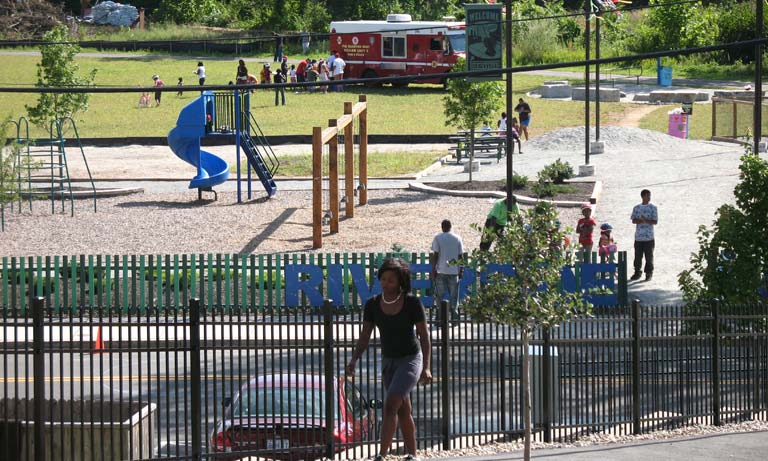
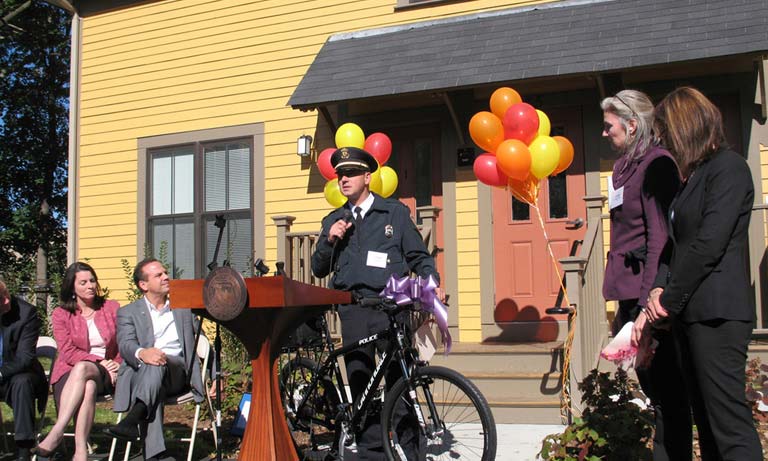
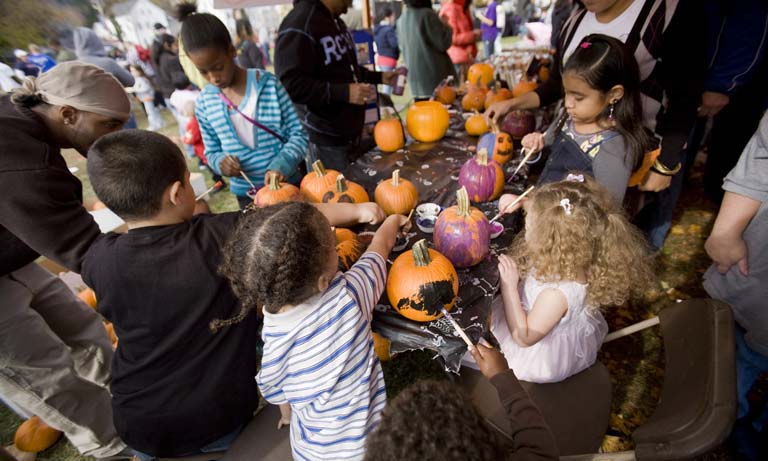
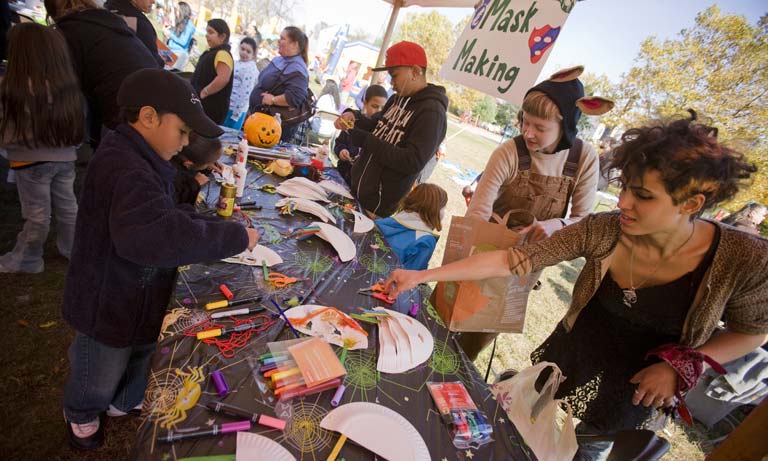
6
Boys and Girls Clubs
Phoenix, AZ
Healthy communities
offer safe opportunities
for educational and recreational programs
for kids.
Healthy communities offer safe opportunities for educational and recreational programs, particularly for kids. In Phoenix, LISC provided $10 million in New Markets Tax Credits to support new Boys and Girls Club branches throughout the metropolitan area. Each facility offers more than 25,000 square feet of safe, year-round, after-school and summer activities where kids can gain educational competencies and participate in a wide array of indoor and outdoor activities that help them develop positive friendships and lead active, healthy lifestyles. The Centers are typically equipped with a gym, teen center, game and art room, computer lab, outdoor field, and a healthy food meal program. One of the branches is immediately adjacent to a LISC Sustainable Community neighborhood and integrates a LISC/NFL sports field that has also hosted an Arizona Cardinal’s mini football training camp for kids.
